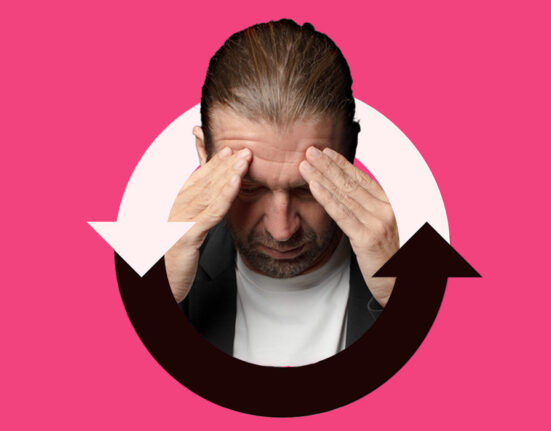The mental health benefits of saying ‘No’
- by Psychologs Magazine News
- April 21, 2025
- 0 Comments
- 5 minutes read
- 1741 Views

The modern world, which thrives on workaholism and over-commitment, projects the idea that saying ‘No’ is an antisocial act. Contemporary psychological research, however, has begun to stress the importance of doing nothing. On the other hand, refusing overwhelming activities may be beneficial for one’s mental health.
Benefits of Saying ‘No’
Reducing Stress and Burnout
One really important reason to say “no” is the reduction of stress. The more someone agrees to multiple requests from work, family, and community, the more they become stretched, increasing the risk of burnout due to exhaustion, often leaving those who set boundaries seemingly more refreshed in comparison. According to Leiter and Maslach (2016), Setting Clear boundaries has been associated with reduced stress. The authors further note that ‘placing clear boundaries is a protective factor against burnout, allowing individuals to preserve emotional energy. Saying “No” helps in rejecting invites and thereby respecting our physical and emotional limits; we would instead choose to do things that suit us and are appropriate for the time.
Even a hesitant ‘yes’ can contribute to Chronic Stress by disturbing the body’s equilibrium. Yes, constantly needling the body overworks the stress hormone, cortisol, which induces stress and depression in the human being. People who have mastered the technique of saying “no” have lowered storage levels of stress in their bodies during stressful times. Learning to reject demands that do not comply with self-priorities may serve as a buffer against physiological stress. Hence, yes reduces mental pressure as well as decreases the stress hormone in the blood.
Enhancing Self-Esteem and Autonomy
To decline any request can be an utmost self-confidence statement and indeed a measure of self-worth. From the Self-Determination Theory by Deci and Ryan, 2000, a primary psychological need would, therefore, be autonomy, which allows acting by one’s values. By always saying “yes” to others’ requests, one also takes away his or her empowerment and self-respect. People who consistently turn down requests that conflict with their goals tend to show higher self-worth and a stronger sense of personal control.
This is very good for people-pleasers. Saying “no” is one of the skills that generates confidence over time. It makes a point that your time and energy are valuable. For such people who have been raised to prioritise everyone else before themselves, the “no” regimen turns out to be transformative, as it may lead to healthier self-regard and a lesser degree of frustration or resentment.
Read More: Signs you are a “People-Pleaser” and How to stop Being One
Fostering Emotional Resilience
Sometimes, rejection helps in strengthening one’s emotional ability because it helps in improving the management of their connections. Too much work affects relationships as people become overwhelmed and stressed, and later results in either withdrawal or irritability. People with ‘no’ boundaries to reject can keep relationships open. They can guard their feelings against any assault to their relationships when they guard them with a kind ‘no’. So, connections might make a person emotionally strong after proximity guarding.
Rejection becomes a way of deterrence against emotional oppression. Most of those who find it difficult to refuse a request fall prey to people who use them to serve their interests. Harriet Lerner, a psychotherapist, says in her book Dance of Connection that “saying ‘no’ is a vital component in the preservation of one’s integrity within the relationship” (Lerner, 2004, p. 89). The most important lesson is learning how to defend oneself from unwanted treatment, as it provides the essential tool for building a healthier emotional foundation in the future.
Overcoming the Guilt of Saying ‘No’
Owning up to the thing, albeit with regret, can indeed produce feelings of anxiety and guilt, especially for those who have been conditioned about everything, barring themselves. However, Researchers have proven that time has a healing effect on this discomfort. Brown et al. (2021) showed that students who participated in an eight-lesson series on the significance of boundaries eventuated in their unwillingness to resist at some point in the future, as well as enhanced general well-being. Although saying ‘no’ may cause initial discomfort, the long-term benefits include improved mental well-being and greater self-respect. Using cognitive reframing and reflecting on ‘no’ as an act of self-care proved beneficial.
Practical Strategies for Saying ‘No’
To reap the mental health benefits of rejection, begin in a small way. To gain some confidence, One needs to practice denying low-risk requests, such as turning down an invitation to a casual get-together. Another approach could be to say it assertively yet politely, such as: “Thank you for the opportunity, but I can’t do it right now.” This makes for a smoother way of rejecting, while appearing confident. Gradually, these activities help in normalising self-care.
Conclusion
Saying no is not just a disagreement; rather, it is a golden opportunity to take care of your mental health. It enables you to release stress positively, appreciate yourself, and create the ability to control your emotions more productively. Varied studies and empirical evidence keep coming up in support of the fact that in the modern age, saying no has become an essential skill. Once accepted, it pays long-term psychological dividends to you. This shows that sometimes, less is more.
FAQs
1. What if I struggle to say ‘no’?
Start with low-stakes refusals and practice reframing ‘no’ as self-care to build confidence over time
2. Is it selfish to say ‘no’?
No, it’s an act of self-care that preserves emotional resources, benefiting both you and your relationships
3. Why do I feel guilty when saying ‘no’?
Guilt often stems from social conditioning to please others, but this discomfort decreases with practice
4. Why does saying ‘no’ improve mental health?
Saying ‘no’ reduces stress, enhances self-esteem, and fosters emotional resilience by allowing individuals to set boundaries and prioritise their well-being
5. How do I know when to say ‘no’?
Say ‘no’ when a request conflicts with your priorities, values, or available resources to maintain mental clarity
6. How can I say ‘no’ without offending others?
Use polite, assertive language, like “Thank you, but I can’t take this on right now,” to maintain respect
References +
- Brown, J., Smith, L., & Taylor, R. (2021). The psychological impact of boundary-setting: A longitudinal study. Journal of Clinical Psychology, 77(3), 665–678. https://doi.org/10.1002/jclp.23045
- Deci, E. L., & Ryan, R. M. (2000). The “what” and “why” of goal pursuits: Human needs and the self-determination of behavior. Psychological Inquiry, 11(4), 227–268. https://doi.org/10.1207/S15327965PLI1104_01
- Leiter, M. P., & Maslach, C. (2016). Latent burnout profiles: A new approach to understanding the burnout experience. Burnout Research, 3(4), 89–100. https://doi.org/10.1016/j.burn.2016.09.001
- Lerner, H. (2004). The dance of connection: How to talk to someone when you’re mad, hurt, scared, frustrated, insulted, betrayed, or desperate. HarperCollins.
- McEwen, B. S., Gray, J. D., & Nasca, C. (2018). Neurobiological and systemic effects of chronic stress. Chronic Stress, 2, 298–312. https://doi.org/10.1177/2470547018763456
- Morin, A. (2017). 13 things mentally strong people don’t do. William Morrow.
- Neff, K. D., Tóth-Király, I., & Colosimo, K. (2019). Self-compassion and relationship maintenance: The mediating role of boundary-setting. Self and Identity, 18(2), 205–220. https://doi.org/10.1080/15298868.2018.1447477
- Weinstein, N., & Ryan, R. M. (2020). Autonomy and well-being: The role of assertive boundary-setting. Personality and Social Psychology Bulletin, 46(3), 435–450. https://doi.org/10.1177/0146167219863456














Leave feedback about this